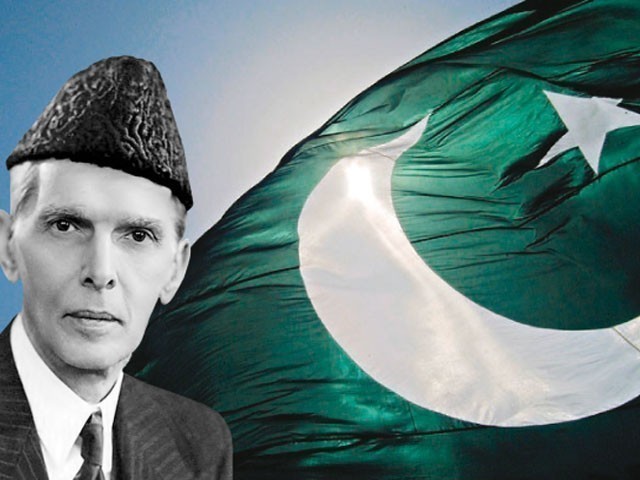
I am writing this piece with reference to Mr Yaqoob Khan Bangash’s article of March 18 titled “Jinnah’s Pakistan”. Notwithstanding the fact that the writer is a chairperson of the history department of Forman Christian College, I would, like to highlight few contentions that I have with his conclusion:
“Jinnah’s Pakistan is an Islamic state, which defines who a Muslim is, excludes those Muslims it does not like and is not very democratic.”
Anyone acquainted with history would not disagree with the fact that the struggle for Pakistan was certainly couched in religious terms. A lot of historians have also argued that Jinnah did appeal to the normative values of Islam. He incorporated religious differences in his rhetoric as a sufficient justification for demanding a separate state for Muslims, which eventually led to the creation of Pakistan in the name of religion.
However, based on Jinnah’s ‘politicking’ and attempt to construe religion as a source of binding Muslims together, what Mr Yaqoob has suggested is that Jinnah always conceived Pakistan to be an ideological/Islamic state guided by Islam.
My only contention is if Jinnah truly did want to create an Islamic state.
Did he want a state where religion would be the only source of identity, where no other orthodoxy would be tolerated except, of course, the dominant Sunni orthodoxy?
Would he have wanted a place where the state would be arrogated the right to define who a Muslim is and who is not – where the state would have the right to put a bar against non-Muslims to occupy positions of the head of a state, the head of a government and the head of Federal Shariah Court (FSC), president and prime minister and head of FSC respectively?
Did Jinnah dream of a state that would have a declared state religion, permeated through the religious realm?
If this was truly the case, I would like to know why almost all the ulemas (religious scholars), including Maududi’s vehicle Jamaat-e-Islami, vehemently opposed the partition and creation of Pakistan. After all, wasn’t it always this that they wanted in the very first place?
If Jinnah’s Pakistan was always meant to be an Islamic state — which defines who a Muslim is, excludes those Muslims it does not like — then why did the Majlis-i-Ahrar-i-Islam (MAI) – a band of Muslim leaders dedicated to an extreme, conservative viewpoint - not support Jinnah?
After all, was it not MAI who had engaged in vigorous anti-Ahmadi campaigns in Punjab? Leaders like Shabbir Ahmad Usmani and Ashraf Ali Thanavi are two exceptions.
It was also this exclusionary approach that attracted several members and sympathisers from among other Muslim political parties. These included the Unionist Party, a potential rival within the province. This was coupled with the fact that MAI also supported an Islamic system for the Muslims of India.
If Jinnah’s Pakistan was meant to be an ideological state guided by Islam, then why did Maulana Maududi, who wanted to transform Islam from merely a faith into an ideology (read Seyyed Wali Reza Nasr on Maududi and the making of Islamic revivalism) oppose Jinnah?
If Jinnah and the Muslim League (like Maududi and the Jamaat-e-Islami) looked to Islam as a legitimising force for Muslim politics, then why were they categorised as such by people likeMaududi:
“No trace of Islam can be found in the ideas and politics of Muslim League… Jinnah reveals no knowledge of the views of the Holy Quran, nor does he care to research them…yet whatever he does is seen as the way of the Holy Quran. All his knowledge comes from Western laws and sources. His followers cannot be but jama’at-i-jahiliyah (party of pagans).”
If Jinnah did not want to create an Islamic state for Muslims then why was he, in fact, pursuing Pakistan?
Pakistan was certainly a decision aimed at emancipating the Muslim community; it was a struggle of one community versus another, not deen (religion) versus dharma.
Scholars like Ayesha Jalal have shown how the popular narrative of Pakistan being based on religious lines is flawed. Turning to religion as a deliberate imprecision was part of Jinnah’s bargaining strategy to seek that power for Muslims.
Remember, Jinnah himself initially was the ambassador of Hindu-Muslim unity. Therefore, in hindsight, one can say perhaps Jinnah did not realise what would inevitably happen, but it is historically incorrect to say that his intention was to create the Islamic Pakistan of today. That would be equivalent to arguing that the loopholes in the legal system of today’s Pakistan show that Jinnah was not a constitutional lawyer.
While Mr Yaqoob has criticised the liberals for overstretching Mr Jinnah’s August 11, 1947 speech of promoting a secular state, he has done the same by oversimplifying Jinnah’s embrace of Islamic principles to show that Jinnah had promised an Islamic state.
If the dearth of Jinnah’s speeches endorsing secular credentials follow that Jinnah envisioned Pakistan to be an Islamic state then there are also many speeches which can be quoted, which clearly indicate that Jinnah never wanted an Islamic state based on one dogma and rigid system of law that is idealised today in Pakistan.
Therefore, yes, this, today, is not Jinnah’s Pakistan.
By Kashif Ali
also published here http://blogs.tribune.com.pk/story/16598/no-this-is-not-jinnahs-pakistan/
No comments:
Post a Comment